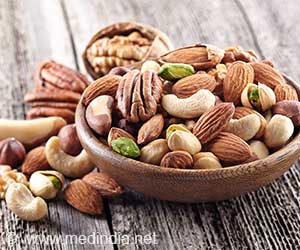Answer to that question is — unless you’re pregnant, supplements probably don’t do anything the way as they promised, as reviewed by USPSTF.
- Vitamins and supplements are a distraction from better proven ways to boost health, including exercise and healthy eating
- There is no evidence that taking multivitamins and supplements can help the prevention of major diseases
- Kindly focus on diet and physical activity to prevent major diseases and to maintain and support healthy and athletic performance
TOP INSIGHT
Everyone is looking for a ‘magic pill’ that will maintain and improve health, that’s not in a supplement aisle. The magic pill is exercise.
New Research on Taking Supplements
USPSTF’s new guidelines are based on a review of 84 studies and concluded that there is insufficient evidence that taking multivitamins or supplements can help prevent major problems like heart disease and cancer.In some cases, they can actually be harmful. For example, the task force highlighted how taking beta-carotene supplements may increase the risk of lung cancer. Other research shows that excess vitamin D is associated with increased blood calcium and kidney stones, and higher vitamin A levels are associated with decreased bone density.
Although everyone is looking for a ‘magic pill’ that will maintain and improve health, that’s not in a supplement aisle, as told by editorial co-author Jeffrey Linder, MD, Chief of General Internal Medicine in the Department of Medicine at Northwestern University Feinberg School of Medicine in Bicycling: “The magic pill is exercise.”
USPSTF report and editorial doesn’t include athletic performance when evaluating supplements and vitamins, but as an avid runner and cyclist, there are two with some evidence behind them: caffeine and beta-alanine. With the latter, there may be a boost in endurance and power, but you need to take it in the right amount, frequency and duration. Even then, the difference may be modest.
Eating a well-balanced diet provides the best results in terms of athletic performance, and adequate sleep is another essential boost. Additionally, the effects of these efforts stack on top of each other. For example, when you eat well and get quality sleep, you have more energy to exercise, which helps with your sleep and eating habits.
What are the Hazards of Taking Too Many Supplements?
Taking supplements might add to your health benefits, however, taking too many supplements can cause health problems. Your body might not be able to able to reap the benefits when you consume too many supplements together. Therefore, it is important that you take these supplements in moderation.Take a look at the effects of consuming too many supplements.
- Irregular Heartbeats: When you include too many supplements in your diet, you are likely to face irregular heartbeats along with high blood pressure. If the condition becomes severe, you might also need hospitalization.
- Liver Damage: When you consume too many supplements, you might have liver diseases because these supplements contain certain compounds which might not be well absorbed by the body and that might lead to liver diseases and if not treated might cause liver damage.
- Stomach Upset: Consuming too many supplements might lead to nausea, vomiting and even diarrhea. Also, when you take supplements you might take become sensitive to certain compounds and these might cause stomach issues.
Benefits of a Healthy Diet over Dietary Supplements
Dietary supplements are not a solution for all consumptions of nutrients that you need. Here are some ways where a healthy diet is much healthier than depending on supplements and vitamins:- Antioxidants: They are extremely helpful in repairing our cells, aid the growth of cells in our bodies and cannot be extracted from dietary supplements. Many foods such as fruits, vegetables, whole grains and nuts, are rich in antioxidants and promote better overall health.
- Nutrition Value: Dietary supplements and vitamins often focus on providing one or few nutrients. There are various complex nutrients and micronutrients that healthy food provides us with, which cannot be procured through them.
- Fiber Rich: You might be able to consume ample nutrients from dietary supplements but they seriously lack fiber. It is extremely important to ensure our food gets digested properly and has many benefits that our bodies need.
Source-Medindia
 MEDINDIA
MEDINDIA





 Email
Email




